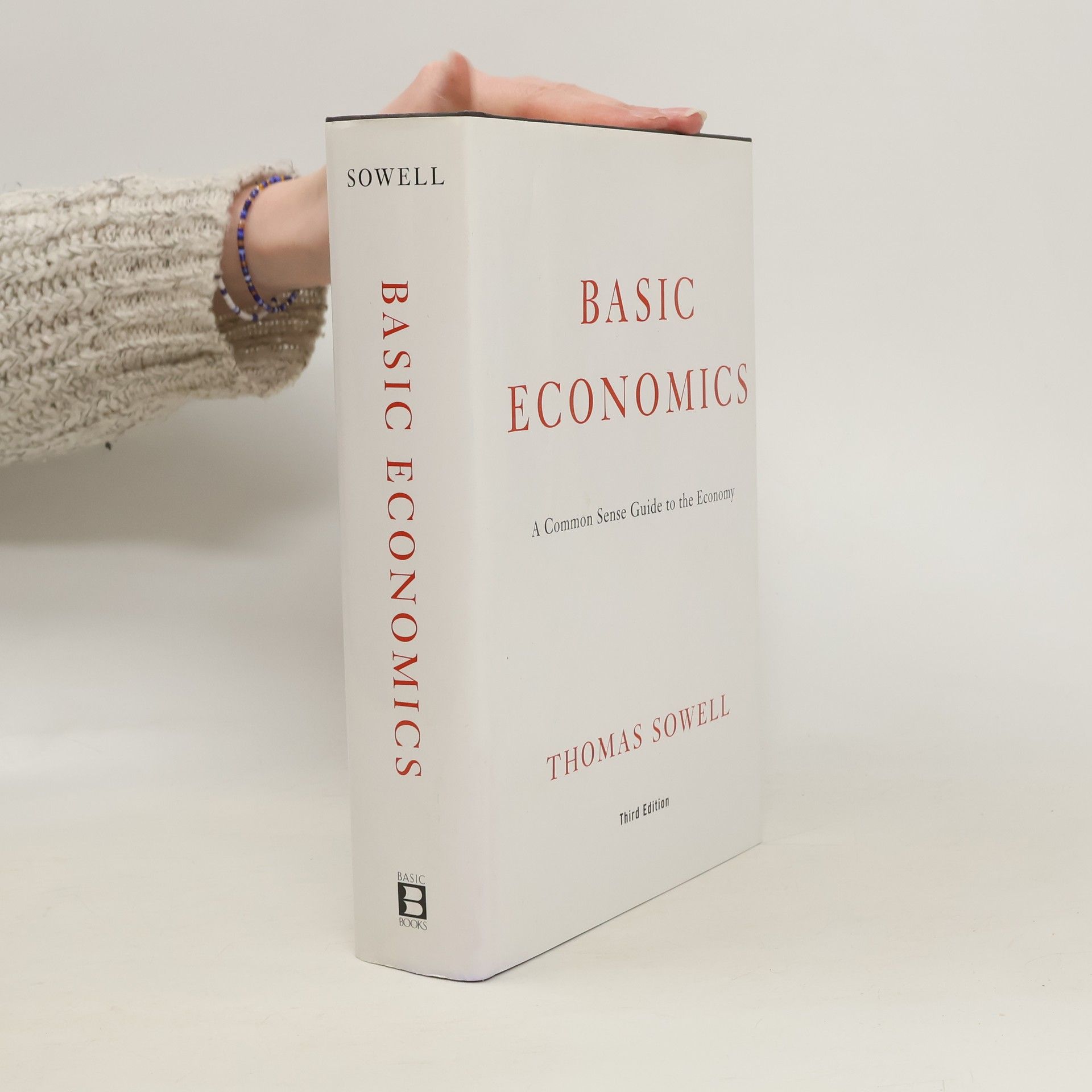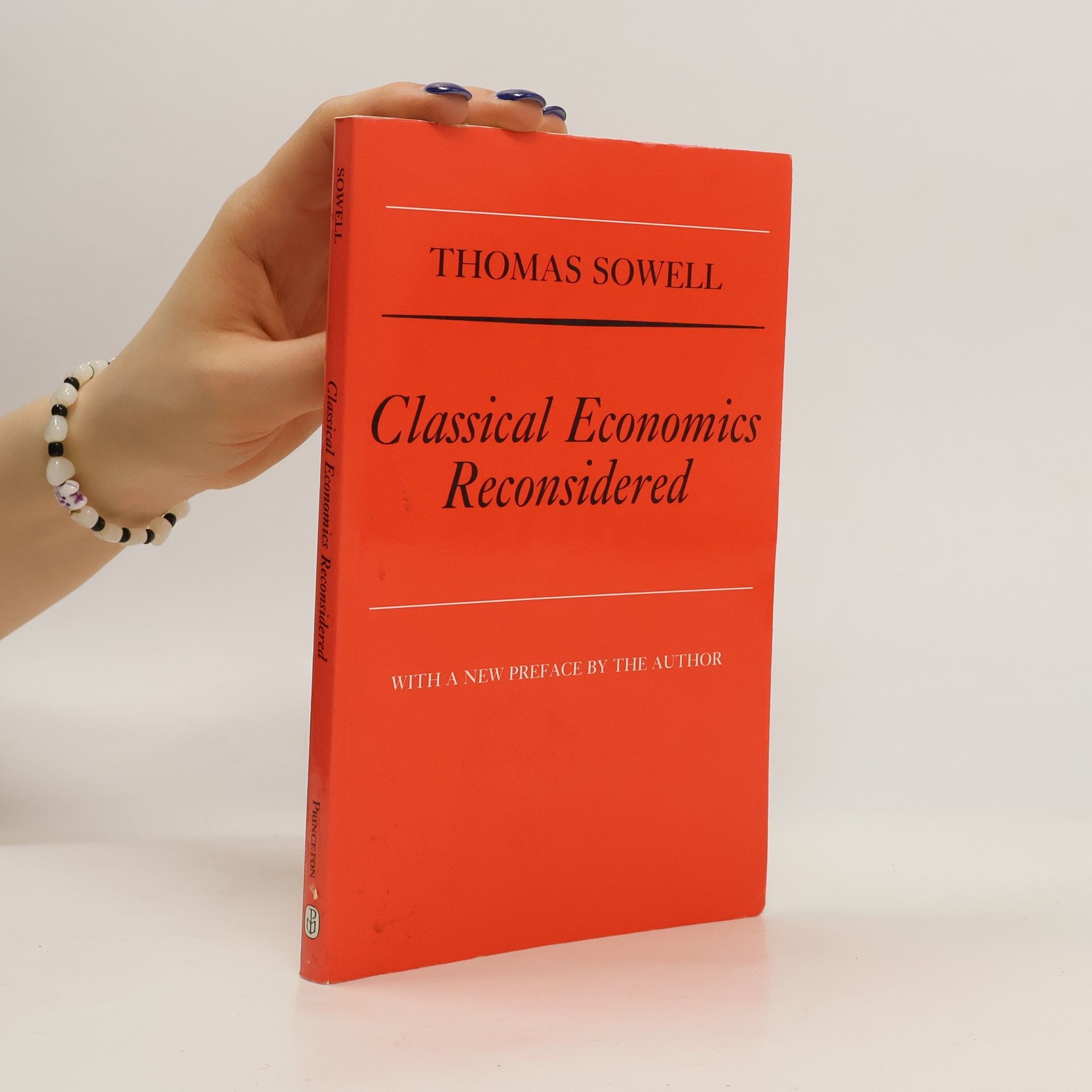Classical economics reconsidered
- 176 Seiten
- 7 Lesestunden
Thomas Sowell ist ein amerikanischer Ökonom und Gesellschaftskommentator, der für seine Laissez-faire-Wirtschaftsperspektive bekannt ist. Sein umfangreiches Werk erforscht treffend die Schnittstellen von Geschichte, Wirtschaft und Politikwissenschaft. Mit seiner analytischen Brillanz und seinem zugänglichen Stil beleuchtet Sowell komplexe gesellschaftliche und wirtschaftliche Fragen. Seine Schriften regen zum Nachdenken über die Grundlagen der Wirtschaftspolitik und gesellschaftlichen Entwicklung an.






Die Untersuchung beleuchtet, wie Wissen individuelle und kollektive Entscheidungen beeinflusst und welche Bedeutung es für Freiheit sowie Effizienz hat. Dabei werden grundlegende Muster in Entscheidungsprozessen analysiert. Als frühes Werk des Autors bietet es wertvolle Einsichten und ist das erste, das ins Deutsche übersetzt wurde.
Reveals the general principles behind any kind of economy such as capitalist, socialist, feudal and others. This book shows how to critique economic policies in terms of the incentives they create, rather than the goals they proclaim. It provides explanations ranging from rent control to the international balance of payments.
An enlarged edition of Thomas Sowell's brilliant examination of the origins of economic disparities Economic and other outcomes differ vastly among individuals, groups, and nations. Many explanations have been offered for the differences. Some believe that those with less fortunate outcomes are victims of genetics. Others believe that those who are less fortunate are victims of the more fortunate. Discrimination and Disparities gathers a wide array of empirical evidence to challenge the idea that different economic outcomes can be explained by any one factor, be it discrimination, exploitation, or genetics. This revised and enlarged edition also analyzes the human consequences of the prevailing social vision of these disparities and the policies based on that vision--from educational disasters to widespread crime and violence.
[Sowell's] take on how culture, geography, politics and social factors affect how societies progressor don'twill rile those addicted to political correctness but leave everyone else wiser.-Forbes
Explains why fallacies abound in economic thinking and why they have such political staying power. This title describes the essential types of fallacies - the zero-sum fallacy, which assumes that one person's gain is another's equal loss; the 'fallacy of composition', the assumption that what is true of the part is true of the whole; and, more.
These selections from the many writings of Sowell over a period of a half century cover social, economic, cultural, legal, educational, and political issues. The sources range from Dr. Sowell's letters, books, and newspaper columns, to articles in both scholarly journals and popular magazines.
A leading conservative intellectual defends charter schools against the teachers' unions, politicians and liberal educators who threaten to dismantle their success
Sowell presents a devastating critique of the mind-set behind the failed social policies of the past thirty years. Sowell sees what has happened during that time not as a series of isolated mistakes b
Focusing on four major cultural areas, this book attempts to understand the role of cultural differences within nations and between nations in shaping the economic and social fates of peoples and of whole civilizations.